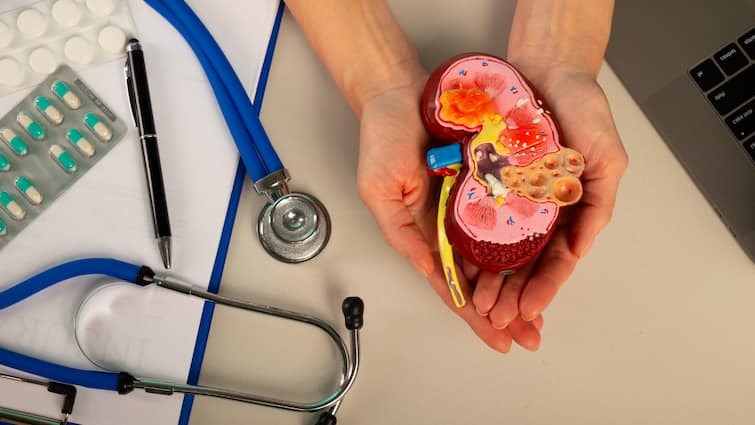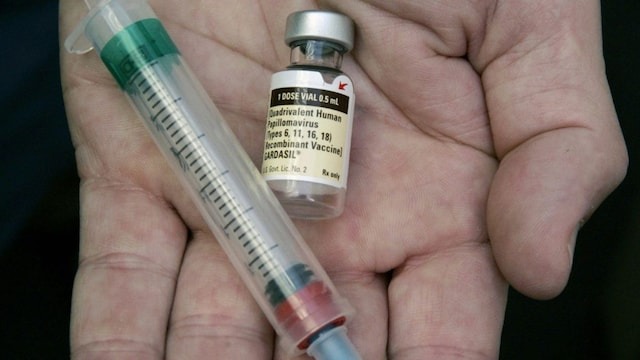
The kidneys play a vital role in the body by filtering waste, balancing fluids, and regulating blood pressure. However, kidney disease remains a silent epidemic, often going unnoticed until it reaches an advanced stage. Many people are unaware of their condition, leading to severe health complications and even death. Recognizing the causes, risk factors, diagnostic methods, and preventive measures is crucial for maintaining kidney health and reducing the global burden of Chronic Kidney Disease (CKD).
The Impact of Undiagnosed Kidney Disease
Undiagnosed kidney disease can have serious consequences, depending on age, disease stage, genetics, and environmental exposure.
What is Chronic Kidney Disease (CKD)?
CKD is defined as a gradual loss of kidney function over at least three months, diagnosed through an estimated glomerular filtration rate (eGFR) below 60 mL/min per 1.73 m² or the presence of kidney damage markers.
Global Health Concern: CKD is predicted to be a leading cause of death by 2040, alongside diabetes, mental illness, and accidents.
Why Early Detection is Difficult: CKD is often called a silent disease because symptoms appear only in advanced stages. By the time serum creatinine levels rise, significant kidney damage has already occurred.
Complications of CKD: Delayed treatment can lead to:
- Cardiovascular diseases (heart attack, stroke)
- Anemia (low red blood cell count)
- Bone disorders (osteoporosis, fractures)
- Malnutrition and muscle wasting
- Reduced quality of life and early mortality
Progression to Kidney Failure
Without timely intervention, CKD can progress to kidney failure, requiring dialysis or a kidney transplant. This places a heavy financial and social burden on individuals, families, and healthcare systems.
Risk Factors Contributing to CKD
Several modifiable and non-modifiable risk factors contribute to kidney disease:
Major Risk Factors
Diabetes – Leading cause of CKD worldwide
Hypertension (high blood pressure) – Increases kidney strain
Obesity – Raises the risk of both diabetes and hypertension
Additional Risk Factors
Family history of kidney disease
Previous kidney injury or kidney stones
Autoimmune diseases (e.g., lupus)
Pregnancy-related kidney complications
Low birth weight or premature birth
Environmental & Occupational Risks
Heat stress & dehydration – Common among agricultural workers
Exposure to environmental toxins (pesticides, heavy metals)
Traditional medicines & herbal remedies – Some may be nephrotoxic
Infections (Hepatitis B, Hepatitis C, HIV)
Climate change & air pollution – Emerging threats to kidney health
Diagnostic Approaches to Kidney Disease
Early detection of CKD is essential to prevent complications and slow disease progression. Several simple and effective tests are available:
Common Diagnostic Tests
Blood Tests:
Serum creatinine – Measures kidney function
eGFR (Estimated Glomerular Filtration Rate) – Determines CKD stage
Blood sugar levels (Fasting glucose, HbA1c) – Identifies diabetes-related kidney damage
Urine Tests:
Urinary albumin-creatinine ratio (uACR) – Detects early kidney damage
Protein or blood in urine – Signs of kidney dysfunction
Imaging Tests:
Ultrasound or CT scan – Identifies kidney stones, cysts, tumors, or blockages
Kidney biopsy – In rare cases, used to confirm specific kidney diseases
Challenges in Diagnosis
- High cost of tests in some regions
- Limited accessibility to healthcare facilities
- Lack of electronic health records to track CKD progression
Preventive Strategies for Kidney Health
Preventing kidney disease requires a multi-level approach, including lifestyle modifications, medical management, and environmental awareness.
Primary Prevention: Reducing Risk Factors
Regular check-ups for high-risk individuals (diabetics, hypertensives)
Healthy diet:
- Low salt, sugar, and processed foods
- High intake of fruits, vegetables, and whole grains
Staying hydrated – 8-10 glasses of water daily
Regular physical activity – At least 30 minutes of exercise per day
Avoiding smoking and alcohol
Limiting NSAIDs (painkillers like ibuprofen, aspirin) – Can harm kidneys
Secondary Prevention: Slowing Disease Progression
Strict blood pressure & blood sugar control
Early treatment of infections & kidney-related conditions
Weight management & reducing salt intake
Tertiary Prevention: Managing Kidney Failure
Dialysis optimization – Ensuring proper access to treatment
Kidney transplantation – Best long-term solution for kidney failure
Vaccinations – Against hepatitis, pneumonia, and flu to prevent complications
Occupational & Environmental Protection
Workplace safety programs to prevent heat stress & toxin exposure
Surveillance programs for kidney donors to ensure long-term health
Eco-friendly dialysis measures – Reducing water & plastic waste
Conclusion
Kidney disease is a growing global health crisis, often progressing silently until it reaches life-threatening stages. Early detection, healthy lifestyle choices, and regular medical check-ups are critical in preventing and managing CKD. Governments, healthcare professionals, and individuals must work together to raise awareness, improve healthcare access, and implement preventive strategies to reduce the burden of kidney disease.
Remember: Taking care of your kidneys today ensures a healthier tomorrow!

 Desk
Desk Share
Share






